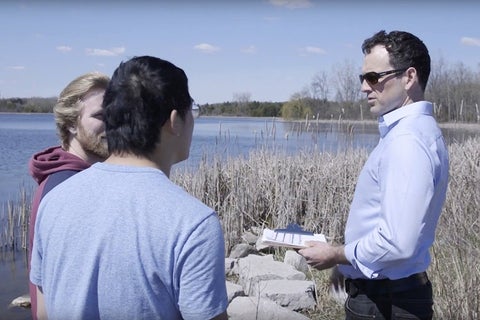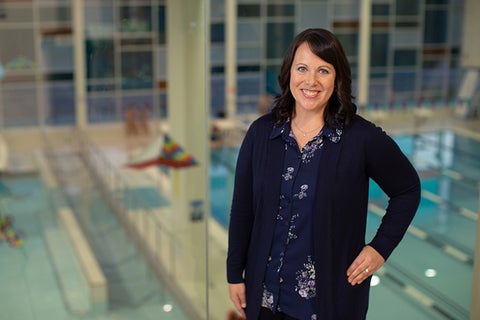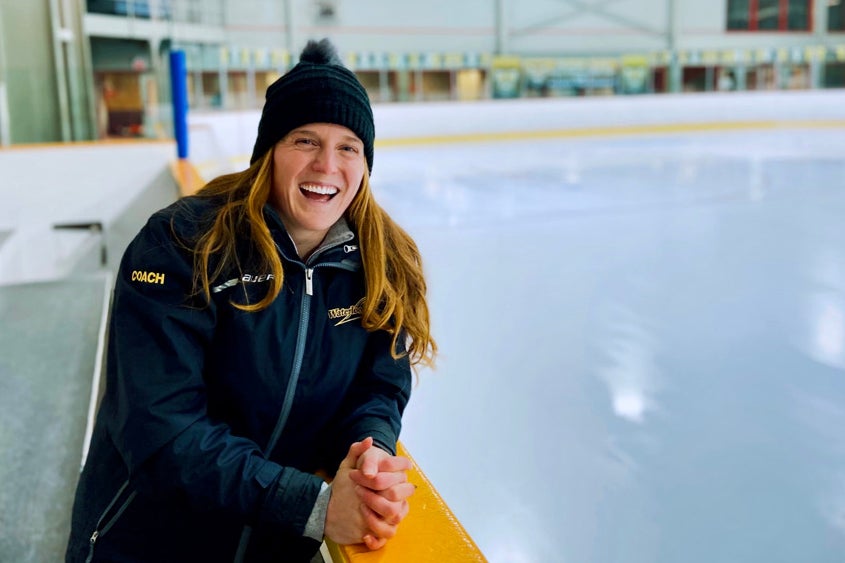Improving lives through research in recreation and leisure
The PhD program provides opportunities for advanced study and research in the field of Recreation and Leisure Studies.
The degree culminates in the completion of a doctoral thesis, which is expected to make an original and substantial contribution to knowledge in areas such as sport, therapeutic recreation, tourism and events. Students are also provided with opportunities for teaching and research assistantships, and are encouraged to participate in undergraduate teaching.

Program overview
The primary objectives of the program are to foster each student's ability to:
- conduct high calibre research and to contribute to the growing body of knowledge in the field
- analyze and evaluate programs, policies and organizational structures aimed at understanding and improving the use of free time and quality of life
- apply and disseminate this knowledge to practitioners, policy makers and managers
The doctoral program is designed for students who plan to teach and/or pursue research careers. It provides a training opportunity for students seeking careers as scholars, researchers, and policy analysts for government, private sector and university positions.
Areas of study
By combining theory and practice, we are deepening our understanding of the positive and negative aspects of leisure and developing new ways to enhance quality of life for individuals, families and communities.
Our faculty members are active scholars recognized for the high quality and quantity of their published work, in a variety of areas in the field including:
Format
The PhD program may be completed either on a full- or part-time basis, but must be completed within the following time periods from completion of the master's degree, unless an extension has been granted (see Graduate Studies Calendar for more information):
- 12 terms | 4 years (full-time from master's level)
- 24 terms | 8 years (part-time from master's level)
- Doctoral thesis
The PhD program requires a minimum of 9 graduate courses (0.5 unit weight each) beyond the Honours BA level. For full details - including course descriptions - see the Graduate Studies Academic Calendar.
Students entering the PhD program following completion of the MA degree in the Department of Recreation and Leisure Studies (University of Waterloo), or an equivalent, will typically have already completed 5 of the 9 required courses, and therefore will need a minimum of 4 additional (0.5 unit weight) graduate courses.
Student evaluation
A review of each student's progress takes place during the month of May each year. Students are evaluated on several criteria, i.e., coursework and resulting grades, progress with regard to the comprehensive examination and thesis work and, where appropriate, reports submitted by the students regarding their research and teaching assistantship activity. A grade average of at least 75% must be maintained.
PhD comprehensive examinations
The purpose of the comprehensive examinations is to ensure that doctoral candidates have a broad and comprehensive knowledge and understanding of the field of Recreation and Leisure Studies, including: 1) different methodological and analytical approaches used in the field, and 2) the broad substantive areas of leisure studies. The process is designed to enable candidates to develop a solid grounding in and understanding of leisure studies. This then provides a foundation for the critical analysis demanded by the dissertation proposal and final defence. The comprehensive examination consists of one written and one oral examination, and the process will normally be completed over a period of six months.
PhD thesis
A PhD thesis proposal is required of all PhD students after passing the comprehensive examinations, and before proceeding to data collection. The proposal should contain a detailed statement of the research problem and its significance for a body of leisure-related theory, a precise account of the methodology or research techniques to be employed, plus a detailed outline of the proposed data analyses. The candidate will be required to present and defend this proposal before the thesis committee. The final thesis report based on the completed research must also be successfully defended to satisfy the thesis requirement.

Finding a graduate supervisor
-
Applicants will be asked to identify a faculty supervisor on their application.
- Review faculty profiles above to learn about research activity and expertise. Prior to applying, reach out to potential supervisors to inquire about whether they are accepting new students to supervise and discuss research interests.
- Admitted students are assigned a graduate supervisor who will assist with matters relating to their program of study. Should a student’s interests change during their studies, the Department of Recreation and Leisure Studies will work to support them in finding a new supervisor.
Awards and funding
Financial support in the form of teaching and/or research assistantships are provided for full time students during their four years. In addition, PhD students are normally provided with at least one opportunity to teach an undergraduate course. Students are encouraged to apply for scholarships and other forms of financial assistance as well.
Graduate student resources
Application deadline: February 1
Applications submitted after this date will be considered on a rolling basis until all available spots are filled.
Considerations for international students before submitting an application:
- While the Faculty of Health at the University of Waterloo values international students in our graduate programs, we can only accept a small proportion of these students.
- Guaranteed funding packages may not be able to cover all tuition and living expenses incurred during a graduate program and students are encouraged to understand more about the cost of completing their graduate program before applying.

Student stories
Influenced by her own experiences as a community-based female coach, Haley Baxter's research investigates the experiences of women and girls as volunteers in the community sport context.
Learn more about Haley and other graduate students in the Department of Recreation and Leisure studies on our graduate students profile page.



